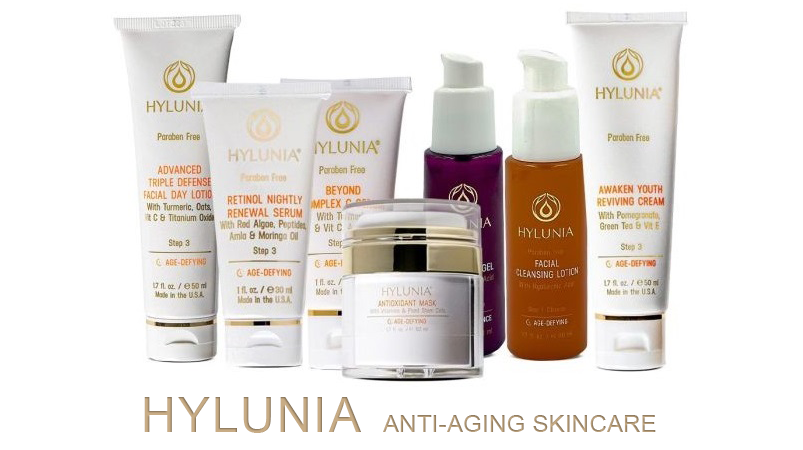
Let’s face it, nobody likes to see those first signs of aging in the mirror. Fine lines, wrinkles, and a bit of sagging can make anyone wonder, “Where did my youthful skin go?” But aging skin doesn’t have to be inevitable. With a bit of know-how, you can understand what accelerates skin aging and take steps to prevent it.
Contents
Sun Exposure: The Biggest Culprit Behind Aging Skin
Sun exposure, or photoaging, is by far the most significant factor in skin aging. The sun’s ultraviolet (UV) rays penetrate the skin and cause damage at a cellular level, affecting collagen, elastin, and skin cells. This leads to wrinkles, fine lines, sun spots, and a rough skin texture. In fact, dermatologists estimate that up to 80% of visible skin aging is directly linked to UV exposure.
How UV Rays Damage Your Skin
There are two types of UV rays to worry about: UVA and UVB. UVA rays penetrate deeply into the skin, breaking down collagen and elastin, which are responsible for keeping your skin firm and elastic. UVB rays primarily affect the surface, leading to sunburn and directly damaging skin cells. Together, these rays accelerate aging and increase the risk of skin cancer.
Prevention Tips for Sun-Induced Aging
- Wear SPF Daily: Choose a broad-spectrum sunscreen with at least SPF 30, and apply it every morning, regardless of the weather.
- Seek Shade: Try to stay out of direct sunlight during peak hours (10 a.m. to 4 p.m.), when UV rays are strongest.
- Cover Up: Hats, sunglasses, and protective clothing can all help shield your skin from UV damage.
Making sun protection a habit can significantly slow down the signs of aging and keep your skin healthier in the long run.
Collagen Loss: The Silent Cause of Sagging and Wrinkles
Collagen is a protein that provides structure to your skin, keeping it firm and plump. As we age, our bodies produce less collagen, leading to thinner skin, sagging, and wrinkles. This natural collagen loss usually starts in our mid-20s and accelerates with each passing decade.
Why Collagen Production Slows Down
Collagen production naturally declines as we age due to a decrease in certain hormones and changes in skin cell turnover. External factors like smoking, poor diet, and sun exposure can also accelerate collagen breakdown, making skin age faster than it would otherwise.
Ways to Support Collagen for Youthful Skin
- Use Collagen-Boosting Skincare: Look for products containing retinoids, peptides, or vitamin C to help stimulate collagen production.
- Consider a Collagen Supplement: Some people find collagen supplements helpful for supporting skin elasticity, though more research is needed.
- Eat Collagen-Rich Foods: Foods high in collagen or amino acids, like bone broth, fish, and leafy greens, can provide building blocks for collagen production.
Keeping collagen levels high can be a game-changer in your skincare routine, helping you maintain firmness and reduce the appearance of wrinkles.
Repeated Facial Movements: Small Actions, Big Impact
Every time you smile, frown, or squint, your facial muscles contract, creating lines in the skin. Over time, these repeated movements cause deeper, permanent wrinkles known as expression lines. Common areas affected include crow’s feet around the eyes, frown lines on the forehead, and laugh lines around the mouth.
How Expression Lines Develop
With age, your skin becomes less elastic and less able to bounce back after each movement. This leads to deeper creases that stick around even when your face is at rest. While expression lines are a natural part of aging, certain habits can make them worse.
Minimizing the Impact of Expression Lines
While you don’t need to stop smiling or frowning altogether, being mindful of habits like squinting or furrowing your brow can help. Here are some tips to reduce the effects of expression lines:
- Wear Sunglasses: Sunglasses can prevent squinting and reduce crow’s feet over time.
- Practice Relaxing Facial Muscles: Simple exercises or relaxation techniques can help reduce tension in facial muscles.
- Use Targeted Skincare: Look for eye creams and serums with peptides or hyaluronic acid to soften fine lines around your eyes and mouth.
Dehydration: How Lack of Moisture Ages Your Skin
Dehydrated skin can look dull, flaky, and, yes, older. When your skin lacks moisture, it becomes more prone to fine lines and wrinkles because dry skin is less resilient. Environmental factors, like dry air, sun exposure, and harsh skincare products, can strip the skin of its natural moisture.
How Dehydration Affects Aging
Dehydrated skin can’t defend itself as well against environmental stressors. When the skin barrier is compromised, it loses water more easily, and dry skin becomes vulnerable to damage. This leads to dullness, uneven texture, and an increased appearance of wrinkles.
Keeping Skin Hydrated and Healthy
- Use a Hydrating Moisturizer: Choose moisturizers with ingredients like hyaluronic acid, glycerin, and ceramides to lock in hydration.
- Drink Plenty of Water: Keeping your body hydrated supports your skin’s moisture balance from the inside out.
- Avoid Harsh Products: Alcohol-based products and strong exfoliants can strip your skin of natural oils, so opt for gentle formulas.
Making hydration a priority can plump your skin, soften fine lines, and give it a radiant, healthy appearance.
Free Radical Damage: The Invisible Enemy of Youthful Skin
Free radicals are unstable molecules that can damage your skin cells, leading to premature aging. They’re generated by environmental factors like pollution, UV rays, and even certain foods. This damage, known as oxidative stress, breaks down collagen and elastin, causing wrinkles, dark spots, and a loss of elasticity.
How Free Radicals Damage the Skin
Free radicals damage the DNA in skin cells, which affects their function and accelerates aging. This oxidative stress can show up as uneven skin tone, texture issues, and more pronounced wrinkles.
Protecting Skin from Free Radical Damage
- Incorporate Antioxidants: Antioxidants like vitamin C, vitamin E, and green tea extract neutralize free radicals, protecting skin cells from damage.
- Wear SPF: Sunscreen prevents free radical damage from UV rays, one of the main sources of free radicals.
- Limit Exposure to Pollutants: Use skincare with ingredients like niacinamide that help defend against pollution, and cleanse your skin thoroughly after spending time outdoors.
Fighting free radicals with antioxidant-rich skincare and sun protection helps preserve your skin’s firmness and clarity, keeping it healthier as you age.

